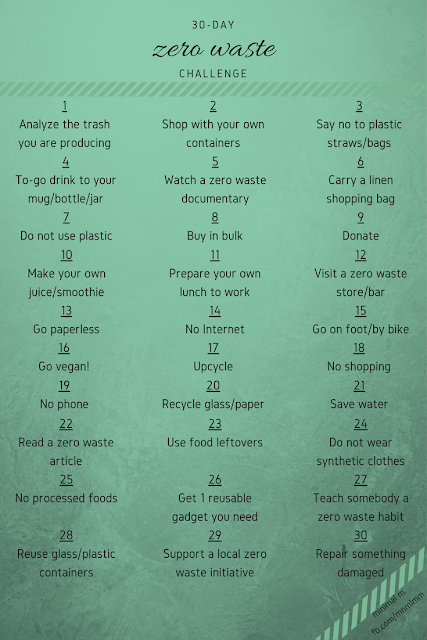3 reasons why you should read Minimalism: Live a Meaningful Life
When you start immersing into the world of minimalism, you are bound to hear about two of the more prominent advocates of this lifestyle, namely The Minimalists.
Joshua Fields Millburn & Ryan Nicodemus are two friends who share their story of minimalism and have been featured in the New York Times, Wall Street Journal, Boston Globe, Forbes, and TIME, just to name a few.
Sounds impressive? Definitely so, especially given that despite their astounding success, the guys still have this casual authenticity to them. That is why shortly after watching their film, "Minimalism: A Documentary About the Important Things", I decided to read their book as well.
Minimalism: Live a Meaningful Life can serve as a guide for both beginners and more advanced people of minimalism and I have got three reasons to prove it:
2. If you love lists, you are going to love it.
The book consists of many detailed lists pertaining to almost every area of your life, such as:
All in all, the book gives you a vast overview and real-life examples of how you can embrace minimalism in many areas of your life. Although more space could be devoted to mental health specifically, I do see that sticking to the minimalism values and rules does benefit your overall mental health as well.
As I mentioned earlier, I would recommend the book as suitable for both beginners and more advanced minimalists.
Why beginners? Because contrary to popular belief, becoming a minimalist is a gradual process. Ryan and Joshua propose slow steps to undertake to 'give it a try'. They suggest ten days of trials when it comes to diets, exercise, and the like.
Rereading, rethinking, taking action. To live a Meaningful Life.
Joshua Fields Millburn & Ryan Nicodemus are two friends who share their story of minimalism and have been featured in the New York Times, Wall Street Journal, Boston Globe, Forbes, and TIME, just to name a few.
Sounds impressive? Definitely so, especially given that despite their astounding success, the guys still have this casual authenticity to them. That is why shortly after watching their film, "Minimalism: A Documentary About the Important Things", I decided to read their book as well.
Minimalism: Live a Meaningful Life can serve as a guide for both beginners and more advanced people of minimalism and I have got three reasons to prove it:
1. It is an extremely well-written book.
It is plain to see that the book is a highly polished product; there are no unnecessary chapters, paragraphs, or even words. Each sentence brings you true value and makes you feel cared for. The guys have created a true gem - kudos!
2. If you love lists, you are going to love it.
The book consists of many detailed lists pertaining to almost every area of your life, such as:
- Five Values that allow us to live a meaningful life (Health, Relationships, Passions, Growth, Contribution. Guess which one of those is the most important according to the writers)
- 18-Minute Exercises
- Eight Elements of Great Relationships
- Ways You Can Contribute to Others
3. The books is very interactive.
It makes you think, it asks you questions, it challenges you.
It also encourages you to reread, take notes, and highlight. Being both voracious and obedient a reader, I will share some of my highlights:
"We are not our stuff. We are more than our possessions. Our memories are within us, not our things."Read Joshua's story about his mother, his marriage, and his career. It will help you get things into perspective.
"Minimalism looks different for everyone because it's about finding what is essential to you."My minimalism does not equal your minimalism. Minimalism is not about limitations, it is about focusing on what is value-adding for you.
"We all know sitting on the couch, eating potato chips, and watching TV isn't the path to a healthy lifestyle. But there is a common misconception that you must live on the other side of the exercise continuum to be healthy - as if you must run five miles every day, go to the gym seven days a week, and be able to bench press a small European vehicle to be fit. But this isn't true."This is something that I can prove myself. Being a dancer, I usually practice one choreography one time during the day. These few minutes really make a difference and visibly help me improve my performance.
"You can't change the people around you, but you can change the people around you."This one is a true masterpiece, isn't it?
All in all, the book gives you a vast overview and real-life examples of how you can embrace minimalism in many areas of your life. Although more space could be devoted to mental health specifically, I do see that sticking to the minimalism values and rules does benefit your overall mental health as well.
As I mentioned earlier, I would recommend the book as suitable for both beginners and more advanced minimalists.
Why beginners? Because contrary to popular belief, becoming a minimalist is a gradual process. Ryan and Joshua propose slow steps to undertake to 'give it a try'. They suggest ten days of trials when it comes to diets, exercise, and the like.
"You can do anything for ten days, right?"There is certainly one thing I cannot do in ten days - read the whole book. I devoured mine in two solid days. What's next?
Rereading, rethinking, taking action. To live a Meaningful Life.



